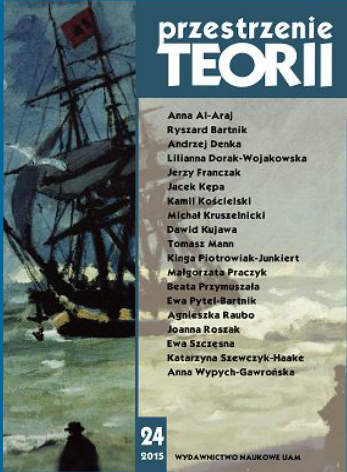(Nie) Chcieć być wszystkim. Stawrogin i najgłębsza otchłań Dostojewskiego
(Not) to want to be everything. Stavrogin and Dostoevsky’s final abyss
Author(s): Michał KruszelnickiSubject(s): Language and Literature Studies, Studies of Literature, Russian Literature
Published by: Uniwersytet Adama Mickiewicza
Keywords: Stavrogin; Dostoevsky
Summary/Abstract: This paper proposes a new interpretation of Nikolai Vsevolodowich Stavrogin – a relentlessly intriguing character in Fyodor Dostoyevsky’s novel The Devils. This reading opposes the very influential line of interpretation employed in works of thinkers working within the current of Russian symbolism and “cultural renaissance” from the beginning of the 20th century. The author argues that this “religious” interpretive tradition contributes to one of the greatest misunderstand- ings concerning Dostoyevsky’s work in that it oversimplifies its ambivalence and obscures one of Dostoyevsky’s darkest insights into the human soul, initially revealed in Notes From the Under- ground and from that time on recurring in each of his major novels. In the first part of the article, several classic Russian interpretations of Stavrogin are examined in order to show their common tendency to morally judge Stavrogin from the Orthodox point of view, recognize his greatest sin in the lack of faith in God and for that reason see before him only the perspective of self- disintegration and inevitable death. The author argues that “religious” interpretations do not explain the mystery of Stavrogin. What is more, they homogenize the complexity of his character and offer an all-to-easy solution to the vital philosophical problem which reiterates in Dostoyevsky’s entire mature fiction and which finds its greatest artistic representation in Stavrogin himself.
Journal: Przestrzenie Teorii
- Issue Year: 2015
- Issue No: 24
- Page Range: 195-218
- Page Count: 24
- Language: Polish

